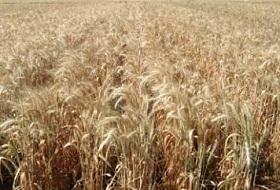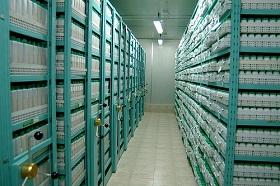Using AI to control energy for indoor agriculture
30 September 2024
Published online 16 September 2012
Despite having to send all of its expatriate researchers out of Syria due to the fighting there, ICARDA has managed to keep up its research programmes and safeguard data from years of research.

Foreign researchers and some local staff have been evacuated from a Syrian agricultural centre for safety reasons as security deteriorates and raids on the premises increase.
Computers, vehicles and other equipment have been stolen from the headquarters of the International Center for Agricultural Research in the Dry Areas (ICARDA) in Tel Hadya on the outskirts of Aleppo in the country's northwest.
Mahmoud Solh, a genetic scientist and ICARDA's director general said the centre's research had not been disrupted and that rigorous preparation by staff meant that information had not been lost. "The premises have been attacked several times [by looters] and we are trying to fix the fence now. They stole about 120 trucks and old cars, air-conditioners and computers.
"We now have a protection force supported by the locals from neighboring communities."
ICARDA's main premises are in Aleppo but it has several regional offices and research stations in Jordan, Lebanon, Egypt, Morocco, Tunisia,Turkey and Ethiopia. They have research, development and capacity building programmes underway in more than 40 countries in collaboration with national programmes.
The relocation of foreign researchers to these offices has allowed ICARDA to continue its work, according to its press office. Currently, there are several large projects underway in South Asia, Central Asia, North Africa and sub-Saharan Africa.
We will have research stations in other places so we don't put our eggs in one basket.
Besides research to increase legume and wheat crop yields in some of the world's driest areas, ICARDA is also working with governments in Africa to determine the best strategic crops and ensure food and water security.
The centre has also been working with war-torn countries in the region. As well as projects to rebuild agricultural systems in Afghanistan and Sudan, it reactivated a programme in November 2011 with Libya to upgrade the country's agricultural research potential following the death of Muammar Gaddafi. More recently, it started collaborating with the Iraqi government on a development research project, the first of its kind, to assess salinity levels in the country and propose options to ensure national food security.
Fortunately, the cropping season was complete before staff were evacuated, and farmers had managed to harvest almost all of the experimental crops and seeds. "Now we are just plowing the fields and preparing international nurseries to send all over the world," said Solh, adding that these operations were continuing but the limited Syrian staff members still in Aleppo were attending the centre less frequently.
All the expensive and sensitive equipment have been moved to houses in Aleppo that were rented by the expatriates who relocated to keep them safe. A smaller research station in Terbol, a small city in the Bekaa region in Lebanon, is also still operational.
Solh explained the measures ICARDA took to protect its data and activities whenclashes in and around Aleppo intensified. "By mid-July, we had arranged everything and the security situation really started to deteriorate in Aleppo by late July," said Solh. "Luckily, we had backed up all the research, financial and corporate documents [outside Syria].

"We are putting together a new plan for medium and long term decentralization. We will have research stations in other places so we don't put our eggs in one basket. But Aleppo will continue to be our headquarters, but then we will have stations in Egypt, Ethiopia and India."
Additionally, Solh confirmed that ICARDA's gene bank, one of the most important agricultural gene banks in the world, was unscathed. The looters did not attack the gene bank, perhaps because they were more focussed on equipment which they could use or easily sell, suggested Solh.
In preparation for the worst, the staff had also sent copies all the gene bank accessions to the Svalbard gene bank in Norway and other gene banks around the world, says Solh. "All the trials have also been replicated in various locations, including Egypt and Turkey."
Due to continuing uncertainty in Syria, there has been concern that funding for the research centre might decrease. However, ICARDA's communication office stressed there was no indication of any sponsors pulling out.
"After the developments in the Middle East, ICARDA's work has become even more important," said Solh. "Right now there are problems in Arab states after the revolutions, but things were impossible to maintain as they were before. The positive effects of the Arab Spring will be seen in the long run."
doi:10.1038/nmiddleeast.2012.133
Stay connected: